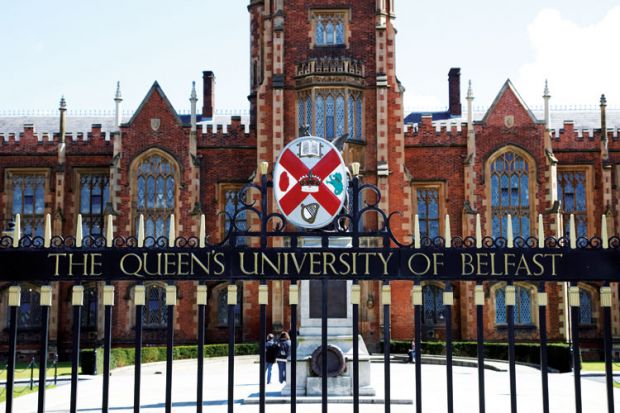Source: Alamy
Queen’s University Belfast has announced “a full risk assessment” to determine whether a symposium about the Charlie Hebdo murders, cancelled earlier this week, can go ahead.
The event, titled “Understanding Charlie: New perspectives on contemporary citizenship”, was due to take place in June.
On 20 April, the organisers sent an email saying that vice-chancellor Patrick Johnston had decided the symposium should not go ahead because of concerns about “the security risk for delegates and about the reputation of the university”.
On 21 April, however, Queen’s issued a counter-statement that the cancellation was a result of the event’s organisers, the Institute for Collaborative Research in the Humanities, failing to complete the appropriate risk assessment.
After the cancellation attracted much criticism on grounds of academic freedom, the university issued a further statement on 22 April stressing that “Queen’s is, and will remain, a place where difficult issues can be discussed”. It also reported that a new risk assessment had been commissioned, due for completion by 1 May, which would guide the university’s decision-making.
However, a slightly different version of events was provided by one of the people involved with the event. Speaking anonymously, they told Times Higher Education that it was their understanding that a “General Risk Assessment Form” had been completed on 23 March.
Asked for a comment, a spokesman for the university said that, when “a funding application to support the symposium” had been submitted earlier this week, it had not included “a complete risk assessment”, which requires consultation with external bodies such as the police.
In order to “ensure a safe and secure environment for all our staff, students and visitors”, it was this which was being carried out now, the spokesman said.




